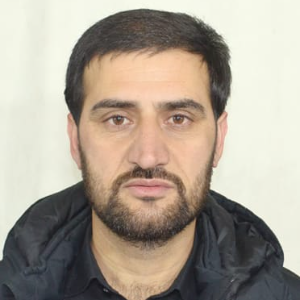Title : Microbial analysis of ready to eat leafy vegetables collected from various areas of district swat, Khyber Pakhtunkhwa
Abstract:
The contamination of leafy vegetables with microbes and heavy metal toxicity is one of the world's most serious environmental issues. Despite the fact that leafy vegetables are well known around the world for their many health benefits. A study was done to determine the microbiological condition of leafy vegetables including Lettuce, Cabbage, Coriander and Mint from different Swat regions (Matta, Khwazakhela, Mingora and Kabal). The study was conducted in the Environmental Horticulture Laboratory at the University of Agriculture Peshawar, Department of Horticulture during the 2018-19 academic year. The experiment was designed using the RCBD method, with one factor and three replicates. Lettuce, Cabbage, Coriander and Mint were found to have the highest bacterial group maximum range for TBC (5.58, 5.56, 5.52 and 5.49 log cfu g-1 ), Enterobacteriaceae (5.49, 5.46, 5.43 and 5.41 log cfu g-1 ), E. coli (4.08, 4.04, 4.13 and 4.03 log cfu g-1 ) Salmonella (4.05, 4.03, 4.04 and 4.02 log cfu g-1 ) and Listeria (4.01, 3.71. 3.94 and 3.79 log cfu g-1 ) was recorded for the vegetable’s samples collected from Mingora location while lowest values of Lettuce, Cabbage, Coriander and Mint for TBC (4.70, 4.66, 4.61 and 4.61 log cfu g-1 ), Enterobacteriacae (4.61, 4.56, 4.54 and 4.53 log cfu g-1 ), E. Coli (3.70, 3.51, 3.61 and 3.53 log cfu g-1 ), Salmonella (3.60, 3.55, 3.57 and 3.51 log cfu g-1 ) and Listeria (3.45, 3.15, 3.35 and 3.25 log cfu g-1 ) was getting for Matta location. The conclusion was reached that the bacterial groups were most prevalent in the vegetables gathered from the Mingora region since all the microorganisms analyzed exhibited a significant difference.



